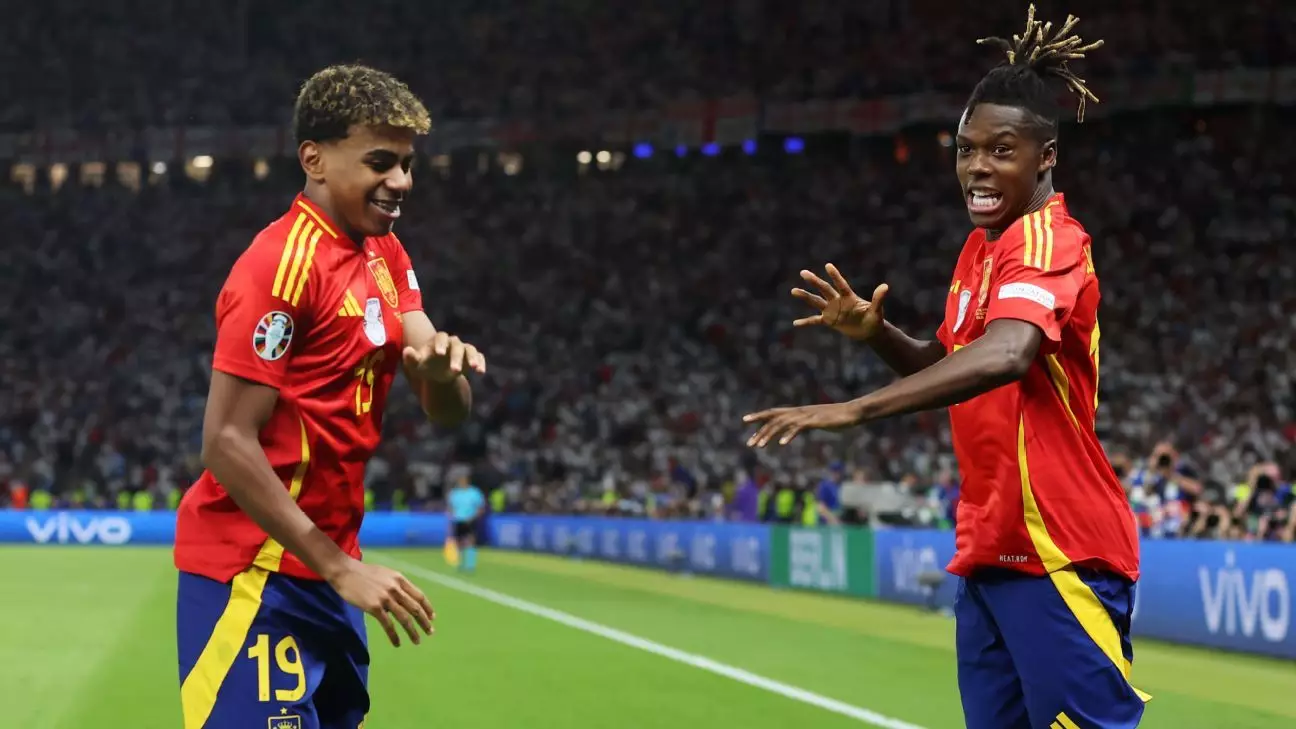Nico Williams, the rising star from Spain, recently opened up about the intense interest he received from FC Barcelona during the summer transfer window. This heightened interest was accentuated by his noteworthy performances in Euro 2024, which put him squarely on the radar of various top clubs. The allure of joining a powerhouse like Barcelona can be overwhelming, especially for a young player eager to showcase his talent on a grand stage. However, Williams ultimately decided to stay with Athletic Club, emphasizing his commitment to his current team.
In a candid interview with the La Revuelta TV show, Williams did not hold back in describing the relentless messages he received from Barcelona players, including his compatriots Lamine Yamal and Alejandro Balde. He humorously characterized these attempts at persuasion by saying, “the ‘bastards’ of Barça” did not help his decision-making process. Such overtures can often complicate a player’s thought process, as balancing the joy of being courted by a prestigious club with loyalty to one’s roots is no easy task. Williams noted, “It was difficult,” highlighting the mental tug-of-war that comes with significant transfer speculation.
Despite deciding to remain at Athletic Club, Williams has continued to receive messages from Barcelona fans on social media, conveying a variety of sentiments about his situation. He remarked on the mixed reactions, noting that while many urged him to make the switch to Barcelona, others expressed dissatisfaction with his decision. This division in public opinion reflects the complex nature of fandom, where affection for a player can often come with an expectation of loyalty to a club, even if that player is contemplating other opportunities. This development showcases the fine line athletes must tread between personal ambition and the allegiances that fans hold dear.
Meanwhile, Barcelona has undergone significant changes under new management. Hansi Flick took over from Xavi Hernandez, marking a new era for the Catalan club. Early reports suggest that the team has started the season strong, demonstrating the effectiveness of Flick’s approach. This transition also highlights the ripple effects that management changes can have on player recruitment and retention strategies. Pedri, a influential player for the club, has spoken out about the differences in discipline between Flick’s methodology and Xavi’s.
Under the new regime, players are now held to the standard of playing time rather than monetary fines for tardiness. Pedri explained, “Flick has taken away the fines. Now if you arrive late, you don’t play,” underscoring how the expectations within the club have shifted. This disciplined approach may be appealing for some players looking for a clear set of guidelines but could also intensify the competition among players striving for a starting position.
As Williams prepares to embark on another season with Athletic Club, the focus shifts towards how his commitment will influence both his career trajectory and the club’s future ambitions. He faces a crucial period ahead where his talent will continue to be scrutinized, and speculation about his potential move to one of Europe’s elite clubs will inevitably persist. The intersection of personal loyalty, ambition, and fan expectations will continue to shape both his professional journey and the landscape of modern football. Williams’ choice to remain at Athletic Club is a testament to his values and highlights the importance of finding a balance between career aspirations and personal loyalty.

